Simulation Candidate Statements
President-Elect Candidate(s)
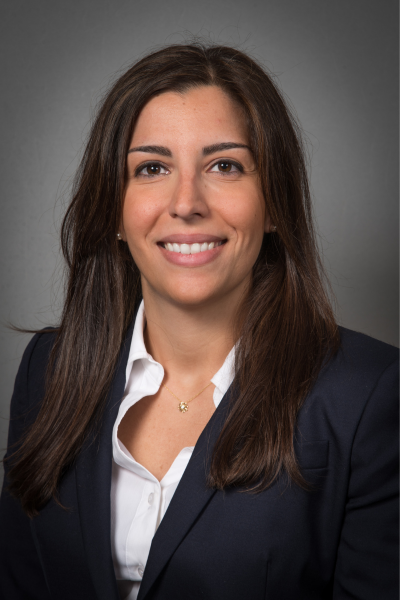
President-Elect
Zucker School of Medicine at Hofstra/Northwell
My name is Tiffany Moadel and It would be my privilege to serve you as President Elect of the Simulation Academy. I’m currently an Assistant Professor of Emergency Medicine at the Zucker School of Medicine at Hofstra/Northwell and serve as the Healthcare Simulation Fellowship Director within the Emergency Medicine Service Line at Northwell Health and the Director for Simulation at North Shore University Hospital, Northwell Health.
Prior to my current position, I completed a Medical Simulation Fellowship at the Yale School of Medicine and continued for two years as the Director for Medical Student Simulation at the Yale School of Medicine and the Yale Center for Medical Simulation. In 2018, I was the recipient of the SAEM Simulation Academy’s Young Educator Award.
I am currently serving my second term as Treasurer of the Simulation Academy. I am also a member of the Faculty Development, Education and Research Subcommittees. I was the lead for the Simulation Academy Research Consultation Service from 2021-2023. Also, as the President of the CORD Simulation Community of Practice in 2021, I worked to develop the Simulation Consult Service as a joint initiative between the Simulation Academy and CORD.
In my current role, I’ve worked with the academy to ensure funding for valued member benefits, including scholarships for ARMED and ARMED MedEd, resident/fellow travel awards to the SAEM annual meeting, on-site food and drink at the meeting as well as a networking mixer, and funding for Sim Wars at SAEM. I have also worked with academy leadership to promote new open forum executive committee meetings for all members.
I look forward to the opportunity of serving you as President Elect of the Simulation Academy. My goals are to: (1) promote faculty development, academic promotion and the individual growth of our members; (2) support collaboration of members within the academy as well as with other major simulation-related organizations; and (3) continue to promote the need for experts in simulation within the house of medicine.
(1) Faculty Development: My top goal is to ensure that the Simulation Academy provides a wealth of resources to support faculty development and to help members at various stages in their careers advance towards promotion. I would like to develop a faculty development toolkit, to help guide individuals at various stages in their career on the path towards academic success and promotion. I would like to create a virtual grand rounds series, where our members can showcase their areas of expertise within a broad range of topics in simulation. I propose developing a guide to assist more senior members on writing strong letters of support for junior faculty applying for promotion and I would like the Simulation Academy to become a resource to help junior faculty identify letter writers.
(2) Collaboration: By creating a virtual directory, identifying members by their topics of interest and expertise, I would love to connect our members to allow the opportunity for discussion and collaboration. I hope to create communities of practice to connect individuals with shared interests (e.g. AR/VR, task training, UGME, late-career, etc.). I would also like to continue the work of our predecessors by promoting collaboration with other EM-based simulation organizations, such as CORD, ACEP, AAEM and SSH. I plan to continue in-person gatherings for Simulation Academy members and our collaborators at the major simulation and EM meetings.
(3) Promotion of the need for simulation expertise in medicine: As a body representing members with expertise in simulation and academic medicine, we will continue to promote the value of our work, its importance across the house of medicine and a method for learning across the spectrum of UGME, GME and CME. This will be accomplished through a social media campaign promoting the work of our members and through communication with other physician groups, governing and licensing bodies.
Thank you for considering my candidacy. I look forward to the privilege and honor of serving you as President Elect.
Secretary Candidate(s)
-
 Tina Chen, MD
Tina Chen, MDSecretary
Saint Louis University
I am Simulation Director for the Emergency Medicine Residency at Saint Louis University, as well as the Associate Dean of Simulation and Clinical Skills for SLU School of Medicine. These roles have allowed me broad experience in designing and implementing high-yield simulation curriculum for clinicians at various stages of training, from the first day of medical school to seasoned faculty.
I’ve served on the Simulation Academy Executive Board since 2020, initially as Member-at-Large, and currently as Vice President of the Education Subcommittee. During my terms, I’ve focused on building a robust community for simulation educators to connect and collaborate with each other on scholarly work, resulting in multiple SAEM and IMSH conference presentations with multiple follow-up manuscripts, all bringing together Simulation Academy members across the country. Spearheading these initiatives required attention to detail, strong communication skills, goal-oriented thinking, and a commitment to supporting and uniting team members’ contributions and perspectives - all useful strengths for the Secretary role.
In running for the Secretary position on the Simulation Academy Executive Board, I hope that I can continue to build a culture that welcomes simulation educators seeking personal and professional growth in a connected national network. The Secretary role allows for a more holistic view of the Simulation Academy’s activities across all its subcommittees, as well as within the broader body of SAEM. I believe that my previous leadership experience positions me well to organize, understand, and communicate with a broader membership base. Additionally, I hope to identify and highlight novel opportunities for Simulation Academy members to network and share perspectives with each other, creating cross-institutional collaborations that champion member interests, generate scholarly activity, and accelerate career growth. -
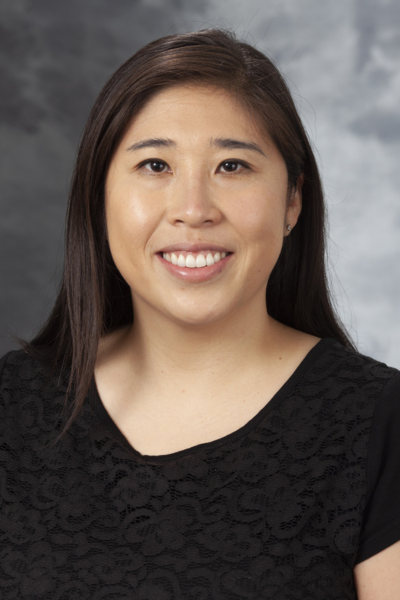 Michelle Hughes, MD
Michelle Hughes, MDSecretary
University of Wisconsin
Did medical school at University of Maryland and Emergency Medicine Residency at University of Chicago. I completed my simulation fellowship at Rush/Cook County and have been Medical Director of Simulation at University of Wisconsin since 2020. I am the fellowship director as well and now have taken over Faculty and APP education as well. I started as a member at large on the Simulation Academy getting involved with the committee. I was also a member of the education subcommittee. I have also started becoming more involved with AWAEM as the simulation liaison and hoping to continue to build that relationship. I have served in the role as Secretary of the Sim Academy for the last year and have continued to build relationships and collaborate with simulationist nationally. I also serve on the EM section of SSH. I feel I have had enough national involvement and connections that I could serve the board and the members well.
Hoping to continue to push forward the agenda of collaboration and projects, especially engaging new resident and fellow members. Hoping to increase awareness of the academy and membership, as well as facilitate more collaboration nationally. Would love to continue to build the network of simulationists, not only for projects but also for mentorship. Have started to do some work with simulation in the realm of DEI and would hope to continue to collaborate with ADIEM in this working group that has been formed.
Treasurer Candidate(s)
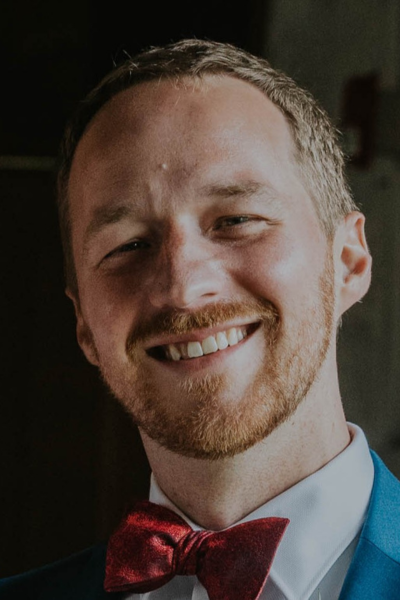
Treasurer
The Children's Hospital of Philadelphia
My name is Michael Hrdy, MD and it would be my great honor to serve as the next Simulation Academy Treasurer. I’m an Assistant Professor in the Division of Pediatric Emergency Medicine (PEM) at the Children’s Hospital of Philadelphia and I am the Assistant Director of Emergency Medicine Simulation Education at CHOP. I have been developing and facilitating simulation sessions since my PEM fellowship and simulation is at the core of my academic career.
I have worked with the Simulation Academy since 2018 and as a result I have facilitated multiple Simulation Academy-sponsored workshops at national meetings and co-authored several simulation education publications, with several exciting collaborations still in process.
Vice President of Education Candidate(s)
-
 Julie Rice, MD
Julie Rice, MDVice President of Education
Johns Hopkins
Hello fearless sim education warriors! My name is Julie (they/she) and I’m running for the Sim Academy Vice President of Education on the Executive Committee. I have extensive simulation experience including a Masters degree in Medical and Healthcare Simulation Education from Drexel University, 9 years as the Director of Simulation Education in the Department of EM at Johns Hopkins Hospital, the completion of several Sim specific training courses, and have completed curriculum development projects internationally in Malaysia, Uganda, and Lebanon. I regularly teach at national conferences and have been excited to present with many colleagues in the Sim Academy. I have been a member of the Sim Academy for 8 years and have enjoyed and learned from my membership on several committees within the Academy.
This year I led an initiative in the Sim Academy Education Committee to develop a workshop of debriefing and facilitation for the SAEM Annual Assembly. My goal is to build an opportunity for our committee members to work together, learn from each other, help promote each other’s academic work, and teach our education colleagues about what we do best! If elected, I would like to continue the development and implementation of similar large annual collaborative efforts so that Academy members can easily find avenues for networking within our specialty. I believe we should be leading education efforts on debriefing, facilitation techniques, and experiential learning within the SAEM community. Together we can develop engaging content that runs annually and works as a vehicle for collaboration and academic growth for us all!
Thank you for your consideration. Stay classy my friends. -
 Diana Yan, MD
Diana Yan, MDVice President of Education
Mount Sinai
I am Diana Yan, a pediatric emergency medicine attending within the Mount Sinai Health System in NYC. I completed my pediatric residency training at University Hospitals/Rainbow Babies and Children’s Hospital in Cleveland, OH and did my pediatric emergency medicine fellowship at the University of Chicago in Chicago, IL. During fellowship, I developed a trauma-based medical curriculum using simulation to teach primary and secondary survey to surgical residents. This work was also supported by a grant from the Academy of Distinguished Medical Educators and led to two manuscripts – BMC Medical Education and Simulation in Healthcare. I am currently getting my Masters in Medical Education and hope to continue to mesh curriculum development with innovative simulation ideas. I have been a guest in the SAEM Simulation Academy Executive Committee during the last year and organize the SAEM Simulation Academy Mentor Hours, where we bring simulation leaders across the country to talk about their projects and career paths with the goal of us gaining a few invaluable pearls of wisdom. I am running for the Vice President of Education in order to uplift the work that is done by SAEM Simulation Academy’s membership at large. This group is a wonderful collection of simulation educators and experts across the nation and the potential here is unlimited. I want to highlight and help develop academically rigorous and thoughtful simulation curriculum.
Vice President of Social Media & Communication Candidate(s)
-
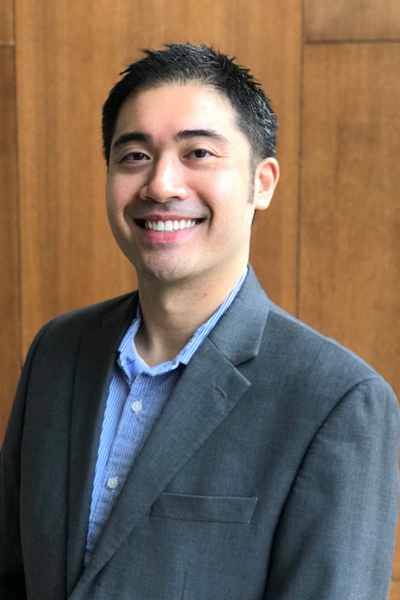 Aga De Castro, MD, MPH
Aga De Castro, MD, MPHVice President of Social Media & Communication
Hartford Hospital / University of Connecticut
It would be an honor to serve as your next VP of Social Media & Communication. I am currently the Assistant Fellowship Director for the Medical Simulation Fellowship program at Hartford Hospital in Connecticut. I also hold an academic appointment as an Assistant Professor of Emergency Medicine at the University of Connecticut School of Medicine. Prior to my current role, I graduated from Georgetown University School of Medicine and completed my Emergency Medicine Residency training at the University of Connecticut. I then completed my Medical Simulation Fellowship at Hartford Hospital, a UConn School of Medicine Level 1 Trauma Center affiliate, where I have stayed in my current roles.
I joined the Simulation Academy as a senior resident to learn more about our community. It was an eye-opening experience to have met so many other members with similar interests in simulation education. As I progressed through now as a Junior Faculty, I have since been involved in promoting Simulation Academy’s objectives as an active member of the Education Sub-Committee. The supportive collaboration I experienced through this amazing opportunity has solidified my interest in supporting Simulation Academy’s goals in other ways I can.
I am driven to serve as your next VP of Social Media & Communication because I believe in the power of effective online communication. I am the social media content manager for my Fellowship Program (@hhmedsim). By utilizing numerous platforms including Instagram, X (formerly known as Twitter), and Facebook, I have learned the ins and outs of effective content management. My professional journey has equipped me with a strong foundation in effective communication and social media management. I hope to leverage my knowledge, skills, and passion for this role to enhance the visibility and engagement of our Simulation Academy, fostering a stronger online presence and creating more opportunities for networking and collaboration within the broader SAEM community. If elected, my primary goals include implementing a cohesive social media strategy, enhancing content quality, and fostering a sense of community among our members, ultimately elevating the Simulation Academy experience for all involved. -
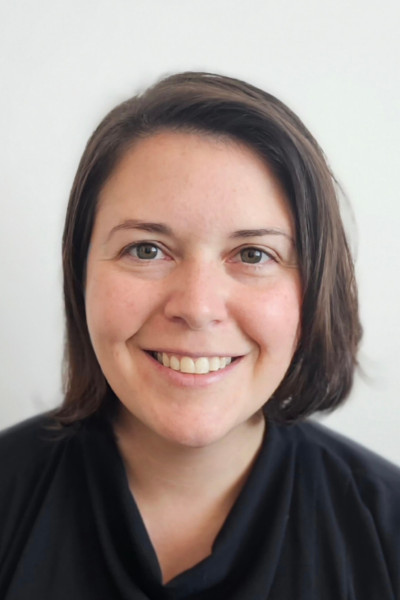 Heather Hechter, MD
Heather Hechter, MDVice President of Social Media & Communication
Emory University School of Medicine
I am running for the SIM Academy’s VP of Social Media and Communication because I want to bring our community closer together, continue to grow member engagement and foster collaborations between individuals and institutions. I trained in emergency medicine at the University of Connecticut and stayed for fellowship in medical simulation at the Center for Education, Simulation and Innovation (CESI)/Hartford Healthcare. I have recently joined Emory University as simulation faculty and am a member of their education committee. Prior to medical school, I worked with the California YMCA’s Youth and Government program as an advisor for a 100+ member delegation where I started and oversaw their Instagram account. Additionally, I have contributed to the social media for my residency and fellowship programs. For SIM Academy, I have attended the last two annual meetings at SAEM, participated in the education committee and presented at this past SIM Fellow Forum. I am hoping to further contribute to the SIM Academy in this role by ensuring the website stays up-to-date and increasing our social media presence.
-
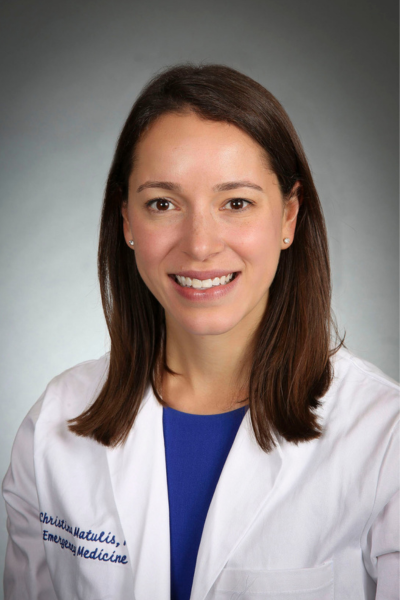 Christina Matulis, MD
Christina Matulis, MDVice President of Social Media & Communication
Kaiser Permanente San Diego Medical Center
My name is Christina Matulis and I am applying for the position of Vice President of Social Media and Communication. I completed my emergency medicine training at the Alpert School of Medicine of Brown University/Rhode Island Hospital followed by a simulation fellowship at Yale University and the Yale Center for Healthcare Simulation. Currently, I am practicing as an emergency physician at Kaiser Permanente San Diego Medical Center where I am also involved in simulation for the residency program and have an interest in expanding interprofessional simulation at our community sites.
Previously, I served as the inaugural fellow on the SAEM Simulation Executive Committee for the 2022-2023 year. During this time, I established an early career physician subcommittee within the Simulation Academy to provide mentorship, support, and networking opportunities for medical students, residents, and early career physicians. Through collaboration with the SAEM committee at large, I helped increase membership and helped host several mentorship talks throughout the year with leaders in the simulation community. In the past year, I have stayed active in the SAEM simulation academy.
As an early career physician, the SAEM Simulation Academy has provided me with crucial mentorship and networking opportunities that have fostered career growth. I want to ensure that we continue to grow our presence within the emergency medicine community so that as many members can benefit from the Academy’s offerings as possible. If elected as the VP of social media and communication, I will continue to grow the presence of the SAEM Academy to increase our membership, with a particular emphasis on early career physicians who are shaping the future of simulation in emergency medicine. Early on in my position, I will assess areas of success as well as improvement for communication, so that we ensure we are reaching all eligible SAEM members who could benefit from membership to our Academy. I will also continue to increase awareness of our committee at national conferences so that we can create meaningful collaborations nationally, both virtually and in-person.
Fellow Candidate(s)
-
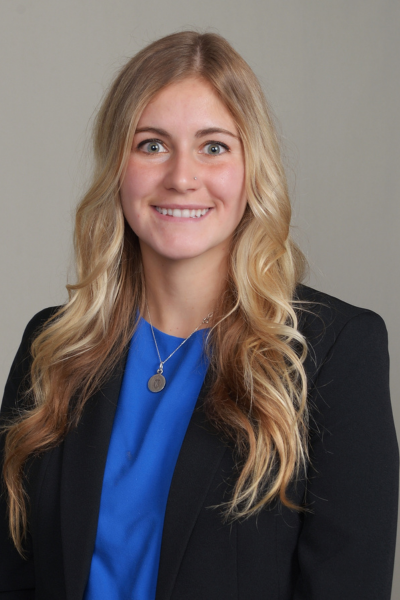 Taylor Cesarz, MD
Taylor Cesarz, MDFellow
University of Central Florida
My name is Taylor Cesarz and I am running for a fellow position on the SAEM Simulation Academy Executive Committee. I am currently the academic chief resident at the University of Central Florida/HCA GME Consortium of Greater Orlando Emergency Medicine Residency Program. I have accepted a position for a simulation fellowship at the University of Wisconsin-Madison for the 2024-2025 academic year. During residency, I have had the opportunity to explore my passion for education and found a perfect fit within simulation. Early on in residency, as a learner, I found myself gravitating toward simulation as a way to explore knowledge deficits and enhance my own learning in an engaging way that provided an element of safety while emulating a real-life environment. As I progressed through residency, I found myself becoming even more passionate about simulation from the perspective of an educator, and I began getting involved in simulation education for medical students and co-residents. Being able to work closely with my program’s director of simulation inspired me to pursue further training in simulation and to work toward making a difference on a national level.
As my program’s academic chief resident, part of my role is to create ways to make our didactics and simulation days more interactive. One of the ways I have tried to accomplish this is through the design of an EM Pearl of the Week, aimed for our interns to review core EM content. I am also in the process of working with our simulation director to add a longitudinal gamification curriculum to our monthly simulation sessions in order to encourage resident motivation, satisfaction, and engagement.
Throughout residency, I have been fortunate to have had a lot of exposure to simulation, providing me the chance to continually develop and learn new skills to use during simulation education. I have had numerous opportunities to both design and run scenarios as well as practice important simulation principles such as pre- and debriefing. I was also able to help write and facilitate a case for the 2023 SAEM SimWars, which further sparked my passion for simulation. Perhaps my favorite project, and the one which solidified my decision to pursue simulation as a career, was creating a multi-institutional gamified simulation race for Emergency Medicine residents. My motivation for this project stemmed from my enthusiasm for both innovation as well as gamification in resident education. Both SAEM SimWars as well as EMRA MedWars played a part in my inspiration to create a large-scale competition between residency programs in Orlando. I designed a simulation race, focused on environmental medicine, with stations involving team building exercises, simulation scenarios, and procedural challenges for our residents. While I was creating this race, I scoured the internet for resources to help me in the design; while there were some resources available, they were not very easy to find. While designing this project, I quickly learned how many hours of dedication and resources it takes to host a successful simulation event. With a national network like SAEM, I believe there are likely many projects that have been done that may be useful or helpful to other members of the simulation academy and programs across the country. As medical education continues to evolve, and as the next generation enters residency, I foresee many more innovative and gamified simulation projects on the horizon. With that being said, it would be my goal to bring this spirit of innovation to the committee and develop forums for members to easily search for and/or exchange ideas of projects and resources to promote simulation and further improve and advance medical education, national collaboration, as well as simulation research and scholarly activity. -
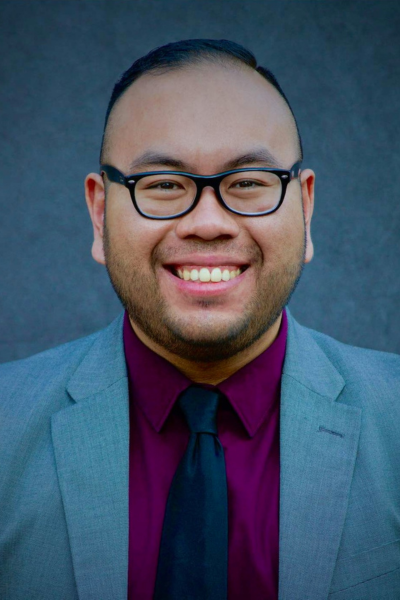 Andrew Melendez, DO
Andrew Melendez, DOFellow
Yale Center for Healthcare Simulation
I am excited to express my interest in the Fellow position for the Simulation Academy Executive Committee. Throughout my journey, I've consistently sought out opportunities to expand my knowledge of simulation as a powerful tool for education, training, and quality improvement. I had the wonderful opportunity during my residency training to rotate at the second-largest simulation center in New England. The Center for Education, Simulation, and Innovation serves a diverse range of learners that includes residents, nursing, medical students, S.W.A.T., EMS, the United States Armed Forces, and other continued medical education learners. This experience pushed me to increase my creativity in teaching approaches to a wide audience of learners and further demonstrated to me the impact Simulation education can have on healthcare.
I have also discovered several areas of interest while building my foundation in simulation-based education. One area is the professional development of the next generation of residents and medical students, especially those who are underrepresented in medicine. Simulation offers an opportunity to level the playing field for underrepresented students who may have faced barriers or disparities in their education by providing a standardized environment. I have been involved in this area through various positions, such as my national role as a residency liaison for the Latino Medical Student Association in medical school, leading a Latinx Affinity Group during residency, and participating in the Emergency Medicine Diversity, Equity, and Inclusion Committee at the University of Connecticut. Moreover, it has also been my goal as a Chief Resident to provide mentorship for the personal and professional development of residents and medical students interested in pursuing academic careers to increase diversity among faculty in medical education. I strongly believe that simulation can equip students with the tools to reduce health disparities and promote health equity.
If elected, I aim to contribute to the committee's mission and to represent the voice of residents and fellows in our joint goal for the advancement of Simulation in Emergency Medicine. -
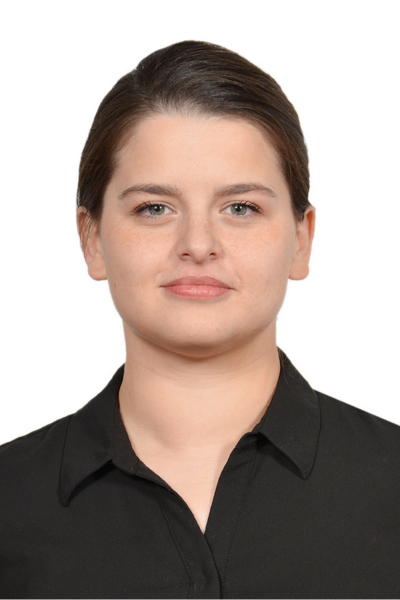 Nora McNulty, MD
Nora McNulty, MDFellow
Vanderbilt
I am Nora McNulty, current PGY4 and Conference Education Chief Resident at the Jacobi-Montefiore emergency medicine residency program. I have also been honored to have been chosen as the simulation fellow for Vanderbilt University Medical Center for the 2024-25 year. My role as chief resident, specifically in the world of conference education, has given me experience in a developing a year-long curriculum for junior and senior residents, developing new and innovative ways to teach emergency medicine topics, and to invite lecturers from outside institutions to our program. This experience has given me many tools in the fields of planning/development, communications and public & media relations, and organizational development.
I am running for office in an effort to build on the goals already set in place by the simulation academy through its mission statement. The portion of the mission statement most important to me and why I am running is to advance the role of simulation as an effective method for competency in emergency medicine among learners. Throughout my time in residency, I have played a role in designing unique simulation experiences that use simulation not only as a tool to grasp bread and butter emergency medicine topics, but also to develop a greater understanding of the greater world of medicine - one outside of diagnosis and treatment. My interest in simulation lies in how simulation can be used as a tool to bridge the gap between patients and their providers; opening up worlds to our learners that they may not have otherwise come in contact with. -
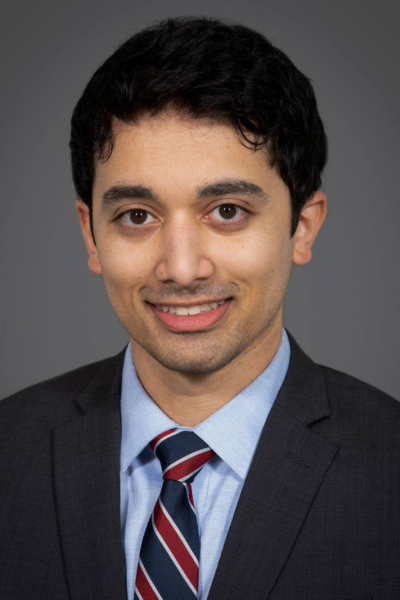 Salil Phadnis, MD
Salil Phadnis, MDFellow
Florida Atlantic University
Hello! My name is Sal Phadnis, I'm a third year EM resident at Florida Atlantic University. In 2024, I'll be starting a simulation fellowship at Indiana University with the goal of pursuing a career in EM GME. I'm currently a vice-chair on EMRA's simulation committee. I offer the perspective and feedback of a resident who has benefited significantly from a strong home sim program and recently traversed the fellowship app cycle.
It seems that a priority for the sim world right now is developing a more collaborative leadership body across different organizations and institutions that can collectively advocate for sim programs, establish standards for sim training, and foster interest in sim/med-ed among medical students and residents. I want to contribute to that goal by using my background to build stronger ties between Sim Academy and EMRA's sim committee, the latter of which i believe has the potential to reach a broader population of residents by virtue of ACEP's sheer size. In particular, my intention is to foster a more visible pathway to sim mentorship for residents and collaborate on exhibits for students and residents at EM conferences to build interest in the various career opportunities in the sim world. -
 Katherine E. Stewart, MD, MEHP
Katherine E. Stewart, MD, MEHPFellow
Brown University
I am a fourth-year resident at Brown Emergency Medicine and am currently completing my first year of our two-year Medical Simulation Fellowship at Brown. To further enhance my training in becoming a researcher and educator, I am also a Fellow in the Masters of Education in the Health Professions program through Johns Hopkin’s University. Whether engaging with large, multidisciplinary teams or small groups of medical students, I have always found it very rewarding to create opportunities for learning and reflection through simulation and have continually sought involvement in medical education, research design, and quality improvement during my residency. Additionally, I have led multiple committees locally including our Brown Emergency Medicine Recruitment Committee, Resident Wellness Committee, Pediatric Lifepact Critical Care Ambulance Transport, and Critically Important Peer Support Program (our local network of trained peer supporters for residents, advanced practitioners, and faculty in Emergency Medicine). These experiences have allowed me to develop as a leader, communicator, organizer, and mentor. I am a current member of the Young Physicians Subcommittee and would be honored to expand my role within SAEM Simulation as a Fellow on the Executive Committee. I feel my background in medical education, research, and peer mentorship will allow me to cultivate stronger connections and collaboration between students, residents, and early career physicians invested in simulation across the nation.
